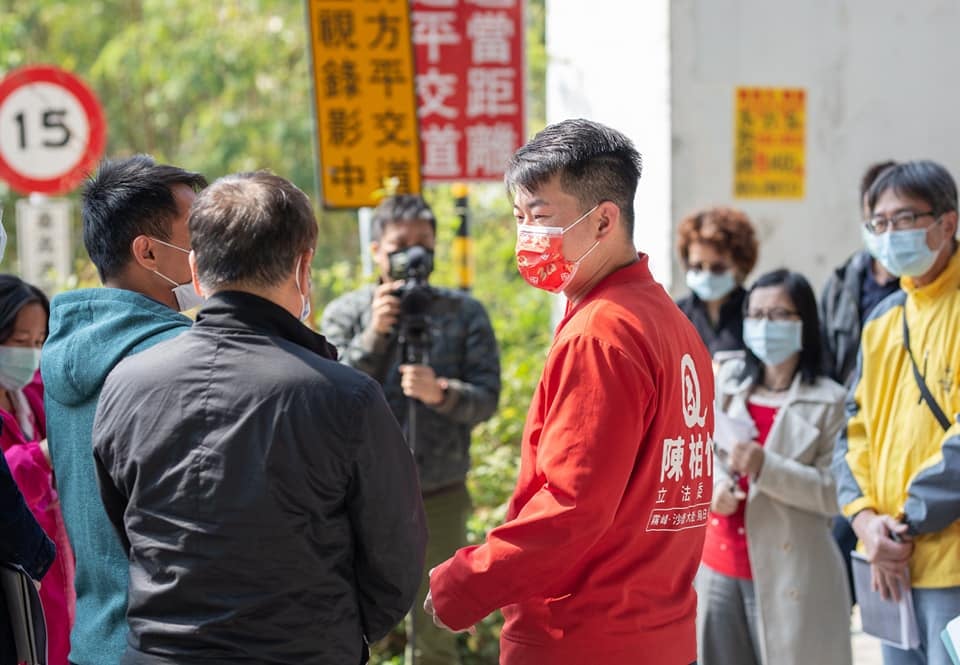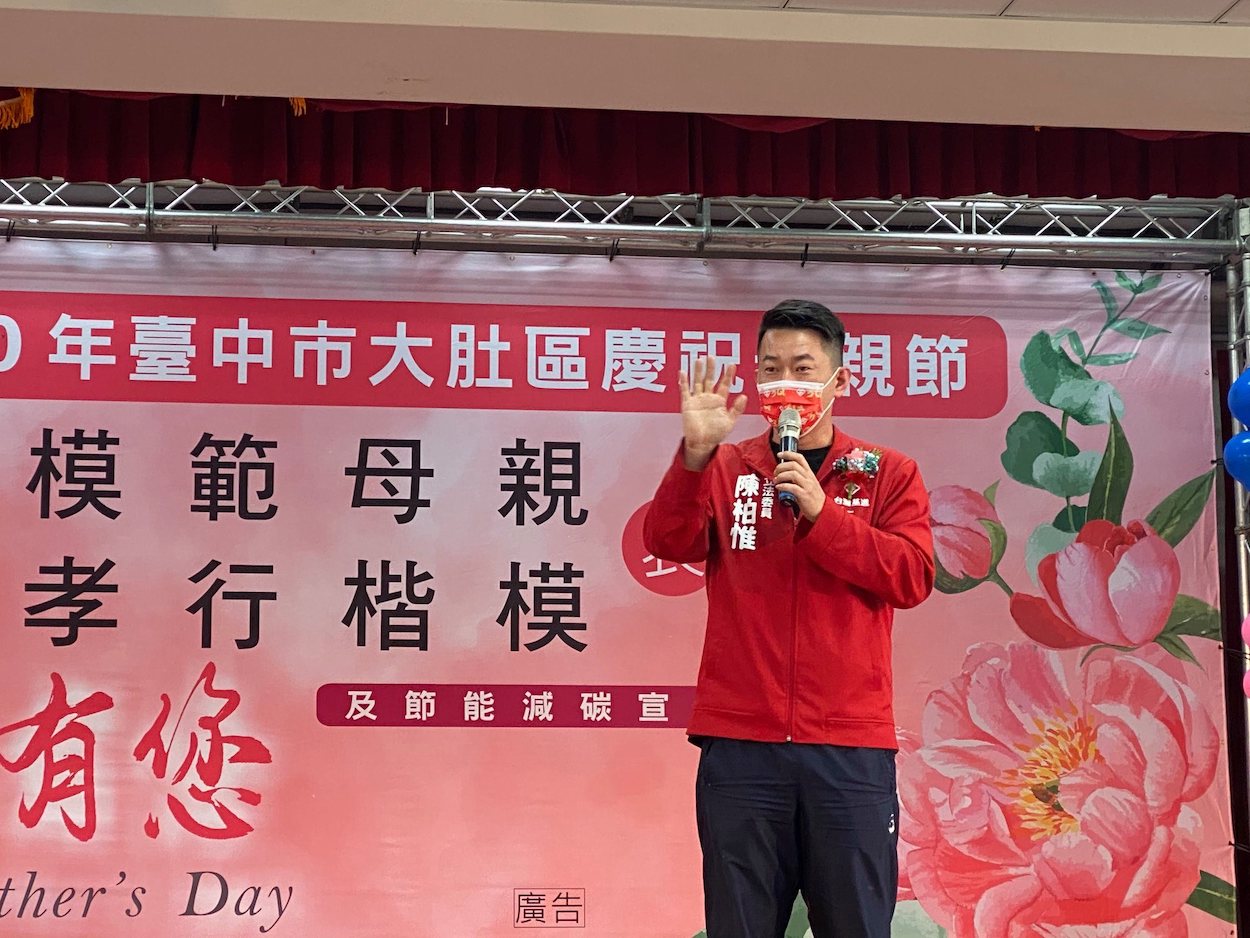by Brian Hioe
語言:
English
Photo Credit: Chen Po-wei/Facebook
CHEN PO-WEI of the Taiwan Statebuilding Party (TSP) was recalled today. Chen, 36, popularly known by his nickname of “3Q”, represented the second electoral district in Taichung as the TSP’s sole legislator.
The vote was a close one, with 77,899 votes in favor of Chen’s recall and 73,433 votes against the recall. Turnout was 51.72%. Voting took place at 258 polling stations. Chen is the first legislator to be recalled since laws governing recalls were changed in 2016, lowering the benchmarks needed for recalls to be binding.
In particular, Chen is one of the younger, progressive politicians with a background in activism that were thought of as part of the “Third Force” that emerged after the 2014 Sunflower Movement. The TSP was known among the Third Force parties for its strong emphasis on Taiwanese identity and stance against Chinese influence. It is probable that the TSP’s future election plans will be affected by Chen’s defeat, with the TSP having historically struggled to win seats in the legislature.
 Chen Po-wei (center) meeting with supporters. Photo credit: Chen Po-wei/Facebook
Chen Po-wei (center) meeting with supporters. Photo credit: Chen Po-wei/Facebook
Local politics in Taichung have long been thought of as dominated by gangster politics and political corruption, as centered around the Yen political dynasty, headed by Yen Ching-piao, the head of the Dajia Jenn Lann Temple and the Dajia Mazu pilgrimage, Taiwan’s largest religious festival. Chen defeated Yen Kuan-heng of the Yen family in his 2020 election victory, with some Taichung residents seeing this as a sign of hope that the city could move beyond the domination of the Yen family, as Chen was a politician that was not linked to a political family or dynasty.
The recall vote against Chen was originally scheduled for August but was delayed due to the COVID-19 outbreak that has affected Taiwan since May. At the time, the KMT accused the Tsai administration of seeking to manipulate the date of the recall vote for Chen’s benefit.
Chen was among a group of younger politicians targeted in the wake of the successful recall vote against Han Kuo-yu that took place in June 2020, as part of “revenge recalls” against those who had been vocal in their criticisms of Han. Other politicians targeted included independent Kaohsiung city councilor Huang Jie, as well as Taoyuan city councilor Wang Hao-yu of the DPP. The recall vote against Huang Jie was unsuccessful, but Wang Hao-yu was recalled.
More generally, the use of recalls against younger, progressive politicians is ironic. It was originally post-Sunflower Movement activists that called for the lowering of benchmarks needed to hold recalls, as a means of targeting corrupt, pan-Blue politicians that have proved hard to oust from office. But, similar to how the KMT has leveraged on the national referendum, another measure historically pushed for by activists, it seems more common for younger progressive politicians to be targeted by the pan-Blue camp using recalls.
Rules to hold referendums were changed in 2016, with signatures of 1% of the voter electorate needed to propose a referendum, 10% of the electorate needed to call for a vote, and 25% of the electorate needed to participate for the vote to be binding. This is a decrease from previous rules requiring 50% of the electorate to participate for referendum results to be binding.
Newly elected KMT chair Eric Chu indicated in his victory speech in September that the KMT would focus its efforts on recalling Chen Po-wei. Chu cast the recall vote against Chen as a referendum on the Tsai administration’s governance, though one notes that Chen was not a DPP politician. To this extent, the recall vote against Chen became more than a matter of local Taichung politics.
Attacks on Chen by the KMT included Chu claiming that Chen had not made any legislative proposals during his time as legislator. This led Chen to file a complaint against Chu. The KMT also alleged that Chen had been involved in organized gambling in the past, due to the fact that Chen was once caught in a police raid on an arcade.
Before the recall vote, other younger progressive politicians rallied in defense of Chen, with politicians including Freddy Lim, Miao Po-ya, and others traveling to Taichung to participate in campaigning on Chen’s behalf. Similarly, the TSP sent most of its politicians to Taichung to rally in Chen’s defense in the weeks before the recall. The DPP declared its support of Chen, again, seeing as the KMT was framing the vote as a verdict on the DPP’s governance.
The night before the recall vote, artists and bands including Sorry Youth, Fire EX, Lin Sheng-xiang, and Chang Jui-chuan played a show at the Taichung Wuri High-Speed Rail station. Civil society called on Taichung voters to travel back to Taichung and vote.
 Photo credit: Chen Po-wei/Facebook
Photo credit: Chen Po-wei/Facebook
However, it is probable that this proves a case in which Chen and other young progressives simply were outgunned by the KMT. Chen’s status as a newcomer to politics put him at a disadvantage to the clientelist networks cultivated by the Yen family over decades. Similarly, younger politicians are sometimes seen as highly active on national-level issues, but having weaker local ties in their constituency. This has been contributed to by the fact that younger politicians have sometimes declined to visit weddings and funerals to cultivate ties, instead preferring to take stances on concrete policies and win support in that way. Yet this has sometimes been used as a criticism of younger politicians, claiming that they see themselves as above common interactions with their constituents.
It can be expected that there will be more pan-Blue “revenge recall” votes in the future. Eric Chu has indicated that independent legislator Freddy Lim will be another target for KMT-led recalls in the future, leveraging on anger against Lim in the wake of heavy impact on Wanhua from the COVID-19 outbreak that began in May. But whether young activists turned politicians will prove more successful in fending off recall votes in the future remains to be seen.

